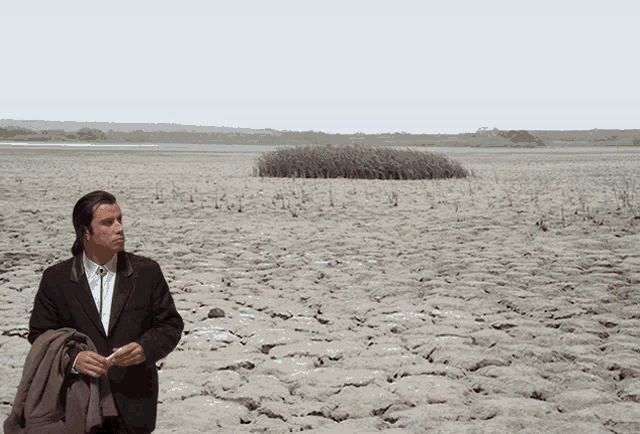Have you ever felt completely inadequate for what God was asking you to do? Moses certainly did. In Exodus 3, we find a man who has settled comfortably into Plan B—eighty years old, tending his father-in-law's sheep in the backside of nowhere. Picture this: a former prince of Egypt, now a desert shepherd, suddenly encounters a bush that burns without being consumed. Then comes the voice that will change everything: "I am sending you to Pharaoh to bring my people out of Egypt" (Exodus 3:10). Talk about an unexpected career change!
His reaction? "Who am I that I should go to Pharaoh?" (Exodus 3:11). But this isn't just an ancient calling story gone awkward—it's the revolutionary moment when God reveals His personal name and unmatched character, transforming a reluctant shepherd into history's most iconic liberator and showing us how our greatest "Who, me?" moments often become the doorway to our most significant purpose.
The Upward Call
Exodus 3 moves with the sacred tension of divine intrusion into ordinary life. Moses is simply doing his job when God dramatically interrupts his routine. The narrative progression is transformative:
Mundane work → Divine encounter → Sacred ground → Divine revelation → Impossible commission → Human reluctance → Divine assurance
This isn't just storytelling – it's a masterclass in how God calls unlikely people. Moses has settled into a quiet life away from his people's suffering, but God hasn't settled for Moses' settlement. What begins as an ordinary day becomes the pivot point not just for one man, but for an entire nation's history and ultimately world redemption.
The Name That Changed Everything
When Moses asks for God's name, the answer he receives is unlike anything in religious history. "God said to Moses, 'I AM WHO I AM. This is what you are to say to the Israelites: 'I AM has sent me to you'" (Exodus 3:14). This self-revelation marks the pivotal theological moment of Israel's story.
This is extraordinary. In a world of many gods named after natural forces or human qualities, YHWH identifies Himself as pure, self-existent being—uncreated, unchanging, unconstrained by anything outside Himself. "I AM WHO I AM" establishes God as the absolute, independent reality upon which everything else depends.
Notice how Moses' first question is "Who am I?" but God redirects his focus to "I AM." Moses' inadequacy isn't the point; God's sufficiency is. Later, this same name becomes the foundation for Jesus' own stunning "I AM" statements—connecting the God of the burning bush directly to the incarnate Christ. What began as a shepherd's curiosity culminates in history's most profound theological revelation. Sometimes our smallest questions become the doorway to God's greatest answers.
THE BAREFOOT PRESENCE
Moses' encounter with sacred space transforms our understanding of divine presence:
What the text says: "Take off your sandals, for the place where you are standing is holy ground" (Exodus 3:5)
What it actually meant: This wasn't inherently sacred real estate—it became holy because of WHO was present, not WHERE it was located.
The symbolism: This barefoot command represents:
Reverence before divine presence
Removing barriers between creature and Creator
Acknowledging God's immediate presence
The transformation of ordinary space into extraordinary encounter
No wonder later temple worship required barefoot priests. Sandals aren't just footwear—they're symbolic barriers between us and direct experience of God's presence. The ground itself hadn't changed—Moses had entered God's presence, and that presence makes anything it touches holy.
The Divine Plot Twist
Exodus 3 introduces a shocking divine methodology. God says, "I have come down to rescue them" (Exodus 3:8), then immediately pivots to "So now, go. I am sending you" (Exodus 3:10). The Omnipotent One chooses to work through a reluctant, flawed human agent.
This apparent contradiction is actually God's standard operating procedure. Without this divine partnership:
Moses never becomes Israel's deliverer
Israel never witnesses God's power through a human vessel
The pattern for future prophet-leaders isn't established
The template for God's work through human agency isn't revealed
The stage for incarnation isn't set
What looks like divine delegation becomes the foundational pattern for God's redemptive work and ultimately points toward Christ, who would perfect what Moses could only foreshadow:
The ultimate "coming down" to rescue
The perfect merger of divine power and human agency
The flawless "I and the Father are one" partnership
The complete embodiment of "God with us"
The final Word after many incomplete words
LOOK AT THAT BUSH!!!
Have you ever really stopped to consider the PROFOUND SYMBOLISM of that burning bush in Exodus 3?
"Moses saw that though the bush was on fire it did not burn up" (Exodus 3:2).
This wasn't just a divine attention-getter—it was a LIVING PARABLE right before Moses' eyes!
Consider what that unconsumed burning bush represented:
Israel in Egypt: Burning in the fires of affliction yet not consumed! Moses himself: About to enter God's consuming fire yet preserved! God's nature: Unapproachable light that can be approached! Divine presence: Purifying yet not destroying! God's power: Supernatural yet working through natural means!
This isn't coincidence—it's DIVINE! While Moses stood barefoot on holy ground, God was communicating through a visual sermon before speaking a single word!
Even the location—"the mountain of God" (later known as Sinai)—foreshadows where God will eventually bring His people to receive the Law through this same Moses.
Even when you feel like you're burning in affliction's fires, remember the bush of Exodus 3! The presence that preserves Israel in Egyptian slavery and Moses in divine commission is the same presence available to you. What looks like consuming fire might actually be the precise way God preserves you through impossible circumstances!
WALK THRU TRIVIA CHALLENGE
Question: In Exodus 3, what sign did God give Moses to confirm his calling and that God would be with him?
A) His staff would turn into a snake B) The Israelites would worship God on that very mountain C) Pharaoh would immediately let the people go D) Moses' face would shine with divine glory
Check your answer below!
THE PRESENCE PRINCIPLE
The most remarkable aspect of Exodus 3 isn't just the burning bush or even the name revelation—it's the central promise that underlies everything: divine presence.
When Moses asks, "Who am I?" God doesn't list Moses' qualifications or potential. He simply says, "I will be with you" (Exodus 3:12).
This reveals a profound truth that echoes throughout Scripture: God's presence is the ultimate qualification for God's calling. The equation is divine simplicity:
Human inadequacy + Divine presence = Mission possible
Not "you can" but "I AM with you"
Not "you are enough" but "I AM enough"
Not "you will figure it out" but "I will be with you"
This principle underlies every great commission in Scripture—from Moses to Gideon to Jeremiah to the disciples. The common denominator isn't human ability but divine accompaniment.
God's strategy isn't finding capable people but enabling called people through His presence. The burning question isn't "Are you able?" but "Is God with you?"
Your Turn to Walk Through
As you read Exodus 3 again (and I encourage you to do so), consider:
What "burning bushes" might God be using to get your attention in everyday life?
Where might God be calling you to take off your sandals and recognize His presence in ordinary spaces?
What "Who am I?" questions are you asking that God wants to answer with "I will be with you"?
Remember, this isn't just ancient encounter—it's a window into how God still calls ordinary people, transforms ordinary places, and accomplishes extraordinary missions through the simple, profound promise of His presence.
The Christ Connection
Exodus 3 vibrates with whispers of Jesus on every page. The burning bush itself—where divine fire dwells in created matter without consuming it—beautifully foreshadows the incarnation, where divine nature dwelled in human flesh without diminishing either. But the connections grow stronger:
God reveals His name as "I AM WHO I AM"—the self-existent, uncreated One. Centuries later, Jesus would repeatedly declare "I AM" statements (the bread of life, the light of the world, the good shepherd, the resurrection and life), directly claiming this divine name for Himself. When Jesus told the religious leaders, "Before Abraham was born, I AM!" (John 8:58), they reached for stones because they understood He was claiming the very name revealed at the burning bush.
Moses asked, "Who am I that I should go?" expressing his inadequacy for God's mission. Jesus, in perfect contrast, knew exactly who He was and embraced His mission without hesitation: "I have come down from heaven not to do my will but to do the will of him who sent me" (John 6:38). Where Moses needed convincing, Jesus needed no persuasion. Where Moses offered excuses, Jesus offered perfect obedience.
God told Moses, "I have indeed seen the misery of my people...and have come down to rescue them." This divine compassion reaches its ultimate expression in Jesus, who saw our slavery to sin and "came down" in the greatest rescue mission of all time. The exodus from Egypt foreshadowed the greater exodus from sin and death that Christ would accomplish.
The same God who appeared to Moses is reaching out to you today. You may feel inadequate, like Moses with his stuttering speech and troubled past. But God isn't looking for ability—He's looking for availability. The One who declares "I AM" invites you to discover who you are in relationship with Him. Will you remove the sandals of self-sufficiency and stand on the holy ground of surrender? Will you give your life to Christ, the great I AM who became flesh to lead you from slavery to freedom? Your burning bush moment—that divine intersection between ordinary life and extraordinary calling—awaits your response.
TRIVIA ANSWER
Answer: B) The Israelites would worship God on that very mountain
Exodus 3:12 says, "And God said, 'I will be with you. And this will be the sign to you that it is I who have sent you: When you have brought the people out of Egypt, you will worship God on this mountain.'" Interestingly, the confirmation would come AFTER the mission was accomplished, requiring Moses to step out in faith first.









